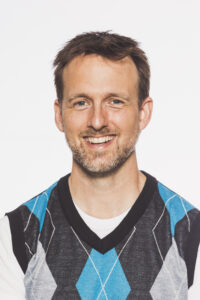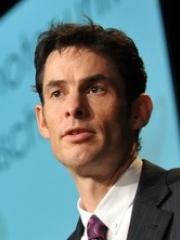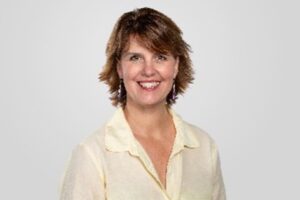Conference Schedule Day 2
Vancouver Convention Centre
West Building, Level 3 Summit
Saturday September 7
Hosted Continental Breakfast
Location: West Level 3 Foyer
Marcus Blumensaat BSc., RMT
"The Cornerstones of Modern Musculoskeletal Health Care"
Location: Main Meeting Room (Rooms 301-305)

I am currently in my 18th year of clinical practice as a registered massage therapist in Victoria, British Columbia, Canada. I also work in high-performance sport alongside Canada’s premier Olympic athletes. This branch of my career is highlighted by working at three consecutive Summer Olympic Games from 2008-2016.
Over the past 18 years I have been blessed to work with and learn from some of the world’s leading experts in musculoskeletal health care. I also continue to build my database from hundreds of case studies I see in clinical practice.
I am so passionate about moving musculoskeletal health care forward that I decided to start sharing all the great information and knowledge that I have compiled over my career. I spent several years putting everything into a presentable format and subsequently launched my continuing education courses in 2021. The reviews for my courses have been phenomenal and I have another fantastic year of courses and conference appearances lined up.
Refreshment Break
Location: West Level 3 Foyer
Dr. Paul Hodges DSc, MedDr, PhD, BPhty(Hons), FAA, FACP, APAM(Hon)
"Understanding Pain: Does the Mechanism Influence How We Treat the Patient?"
Location: Main Meeting Room (Rooms 301-305)

Paul W. Hodges DSc MedDr PhD BPhty(Hons) FAA FACP APAM(Hon) is an National Health and Medical Research Council (NHMRC) Senior Principal Research Fellow, Professor and Director of the NHMRC Centre for Clinical Research Excellence in Spinal Pain, Injury and Health at The University of Queensland (UQ). He is lead chief investigator on an NHMRC Program Grant that includes colleagues from the Universities of Melbourne and Sydney. Paul is a Fellow of the Australian Academy of Science, which is a Fellowship of the nation’s most distinguished scientists, elected by their peers for outstanding research that has pushed back the frontiers of knowledge. He is also a Fellow of the Australian College of Physiotherapists and was made an Honoured member of the Australian Physiotherapy Association, their highest honour.
Paul is a recognised world leader in movement control, pain and rehabilitation. His unique comprehensive research approach from molecular biology to brain physiology and human function has led to discoveries that have transformed understanding of why people move differently in pain. His innovative research has also led to discoveries of changes in neuromuscular function across a diverse range of conditions from incontinence to breathing disorders. These observations have been translated into effective treatments that have been tested and implemented internationally.
Paul has received numerous national and international research awards that span basic and clinical science. These include the premier international award for spine research (ISSLS Prize) on four occasions; three times in Basic Science (2006, 2011, 2019) and once in Clinical Science (2018). International awards in basic science include the SusanneKlein-Vogelbach Award (2010) and the Delsys Prize for Innovation in Electromyography (2009). National medical research awards include the NHMRC Achievement Award (2011). He has also received national community-based leadership awards including the Young Australian of the Year Award in Science and Technology (1997), Future Summit Australian Leadership Award (2010), and Emerging Leader Award (Next 100 Awards, 2009).
Paul is a past president of the International Society for Electrophysiology and Kinesiology and has been the Chair/Co-Chair for several major international conferences. He has led major international consortia to bring together leaders from multiple disciplines to understand pain.
Hosted Lunch Courtesy of Wilson Beck
Location: West Level 3 Foyer
Dr. Tracy Gaudet MD.
"The True Transformation of Healthcare Shifting from Disease Based to Purpose Driven Aligning with the Integrated Value of Massage Therapy and Future Opportunities."
Location: Main Meeting Room (Rooms 301-305)

Tracy Gaudet, MD is a leader in the development of Whole Health through decades of radically re-envisioning and implementing new approaches to address health outcomes and costs. She is co-founder of a new organization called the Cornerstone Collaboration for Societal Change. Prior to this, she served as the founding Executive Director of the Whole Health Institute. Dr. Gaudet was also the Founding Executive Director of the Veterans Health Administration’s National Office of Patient Centered Care and Cultural Transformation. This Office led VHA’s transformation to Whole Health, an approach to healthcare that empowers and equips people to take charge of their health and live their most meaningful life. Under her leadership, VA health care delivery has been re-envisioned and is being implemented nationally.
Previously, Dr. Gaudet was with Duke University Health System, where she served as Executive Director of Duke Integrative Medicine until 2010. Under her leadership, Duke
Integrative Medicine created a state-of-the-art healthcare facility dedicated to the transformation of medicine through the exploration, demonstration, and research of new models of patient-centered care.
Prior to her work at Duke, Dr. Gaudet was the Founding Executive Director of the University of Arizona Program in Integrative Medicine, leading the design of the country’s first comprehensive curriculum in this new field and launching the distant learning fellowship. In addition, Dr. Gaudet co-founded the Academic Consortium for Integrative Medicine and Health.
Dr. Gaudet, a board-certified obstetrician-gynecologist, was featured in the PBS nationally acclaimed special entitled “The New Medicine,” and named by Shape magazine as one of the eleven women who shape the world. Dr. Gaudet has been recognized as one of the “Top 25 Women in Healthcare” by Modern Healthcare and featured as a Game Changer in Fortune Magazine. She was honored with the Bravewell Leadership Award for her significant contributions to advancing the field of medicine, recognized for her significant leadership that benefited our Nation’s Veterans with the Exemplary Service Award, and most recently was honored with the Visionary Award from the Academy of Integrative Health & Medicine for her leadership in transformative healthcare. Dr. Gaudet is also the author of Consciously Female, a book on integrative medicine and women’s health, and Body, Soul, and Baby.
Refreshment Break
Location: West Level 3 Foyer
Panel Discussion
"Coming Together: Moving our Profession Forward"
Location: Main Meeting Room (Rooms 301-305)
Moderated by Gordon MacDonald
RMTBC
Panelists
Monty Churchman
Canadian Sports Massage Therapy Association
Garry Lavis
Massage & Myotherapy Australia
Christian Vulpe
Canadian Massage Therapy Council for Accreditation
Brandy John
Canadian Council of Massage Therapy Schools
Tricia Weidenbacher
Canadian Massage Therapy Association
Closing Remarks
Location: Main Meeting Room (Rooms 301-305)